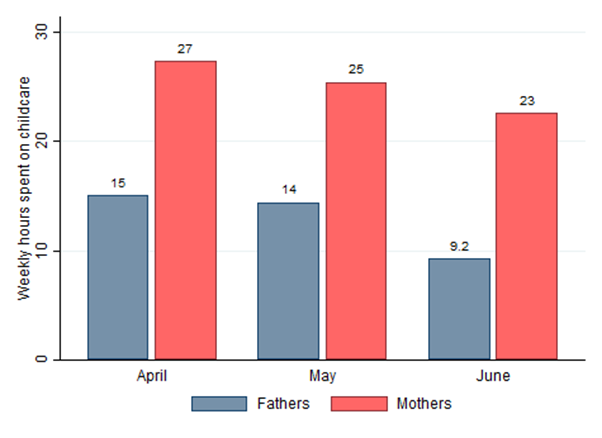Remember that film “Meet the Parents? You might remember that the main character, played by Ben Stiller, was a nurse. A “male” nurse as they frequently emphasised in the film. The jokes, which you’d hope would be outdated by now, reflect the gendered expectations many people still have about the nursing profession.

Nursing is a crucial and necessary profession, never more apparent than throughout the COVID-19 pandemic. But in the UK, just 10.8% of nurses are men, a decline of 0.6% since 2017. Why? Because there is a stigma surrounding the job, where men can be deterred due to a perceived link between nursing and femininity.
The trope isn’t limited to the nursing profession. Men who work part-time to take on more childcare responsibility are frequently stigmatised, yet 7 in 10 working fathers would like to work more flexibly. Fathers in the UK are more likely than non-fathers to work long days of 10 hours or more, while 33% of people in the UK still think a mother should stay at home when there is a child under school age.
Around a fifth of men in full-time jobs with a significant other say their partner is responsible for housework, and women carry out an average of 60% more unpaid work than men.
Weekly hours spent on childcare and home-schooling by gender since the onset of the pandemic.

Source: London School of Economics 2020
Getting more women into “traditionally male-dominated roles” is only one half of the problem. To truly break the bias, the negative stigmas attached to men doing what have in the past been thought of as “more feminine roles” need to be addressed.
Men in those roles need to be encouraged, valued, and respected – not parodied in mainstream media. People still using terms such as “male nurse” or “female doctor” need to be challenged and working fathers who work part-time need support equal to that of part-time mothers.
Further still, all those roles need to be treated with equal respect to any other professional role (and remunerated as such!) – it’s time to break the bias.
Unconscious bias training courses
Diversity and inclusion is a journey, not a destination. If addressing unconscious bias within your workplace and implementing an integrated strategy is on your agenda, then RightTrack Learning can help.